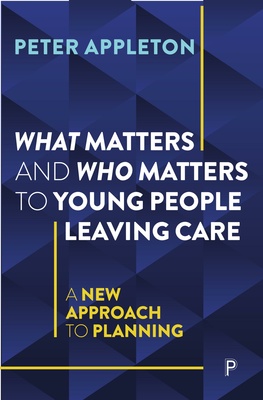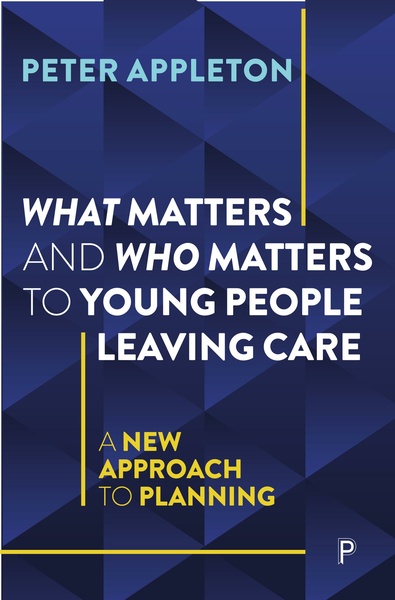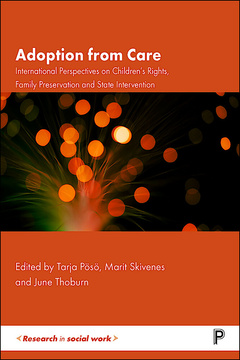What Matters and Who Matters to Young People Leaving Care
A New Approach to Planning
By Peter Appleton
Published
Mar 28, 2024Page count
200 pagesISBN
978-1447368335Dimensions
216 x 140 mmImprint
Policy PressPublished
Mar 28, 2024Page count
200 pagesISBN
978-1447368359Dimensions
216 x 140 mmImprint
Policy PressThe EPDF and EPUB are available open access under a CC-BY-NC-ND licence. This publication was supported by the University of Essex's open access fund.
How do young people transitioning from care plan their future lives? Planning is usually thought of as requiring clear goals and ‘future orientation’, but how might planning be regarded by young people whose wishes, hopes, and plans have been repeatedly dashed? In this book Peter Appleton builds on research interviews with care-experienced young adults, and on cross-disciplinary theories of planning and of emotions, to develop a creative and non-dogmatic three-aspects model of planning for young people leaving care.
A valuable resource for practitioners, researchers, and educators, this book puts forward a powerful case to think more broadly and flexibly about transition planning with care-leavers, placing the voices of young people at its heart.
“Drawing on in-depth interviews with care-experienced young people and cross-disciplinary theories, this book offers rich new insights on transition planning with care leavers. Essential reading for researchers and practitioners in the field.” Emily R. Munro, University of Bedfordshire
"A lively, engaging, and highly accessible text that is a must-read for social work students as well as the more experienced practitioner.” Karen Broadhurst, Lancaster University
Introduction
1. Reflexivity, Internal Conversations, and the Transition From Out-of-Home Care
2. Reflexivity Reformulated
3. My Family Matters
4. A Roof Over My Head: Self-Reliance Matters
5. Time Future: Time Complex
6. What Matters Is Social: Friendships and Social Responsibility
7. A Bridging Chapter: Toward a Three-Aspects Approach to Planning
8. From Reflexivities to Planning: The ‘Remarkable Trio’ of Michael Bratman
9. Emotions: A Background Framework is Called into Question
10. Planning and Voice: Starting Points













